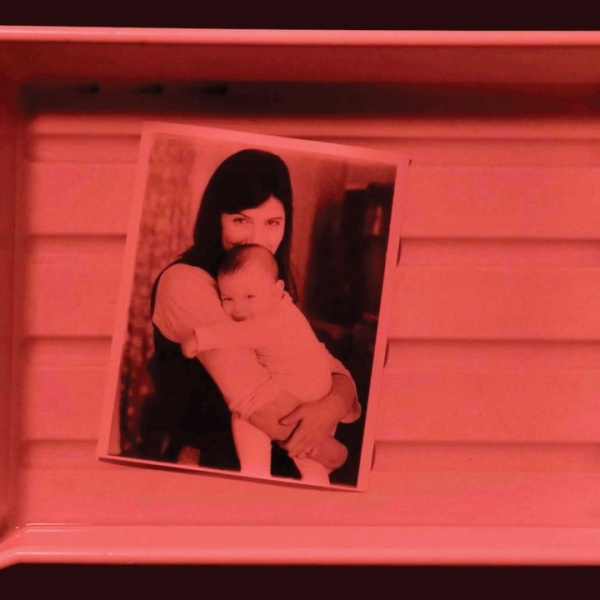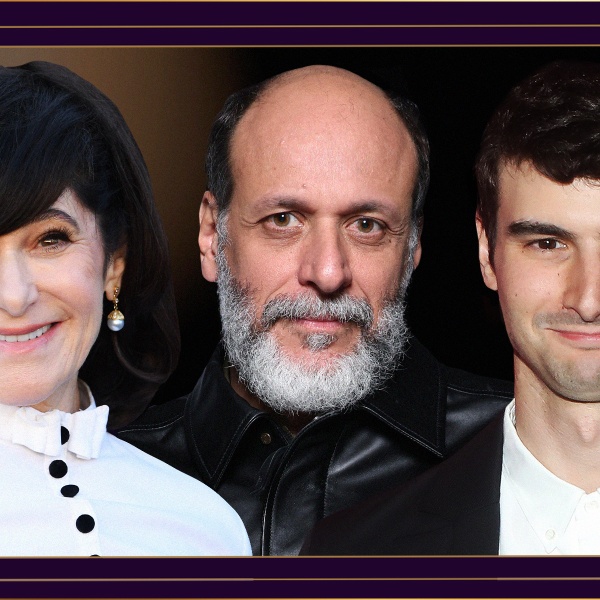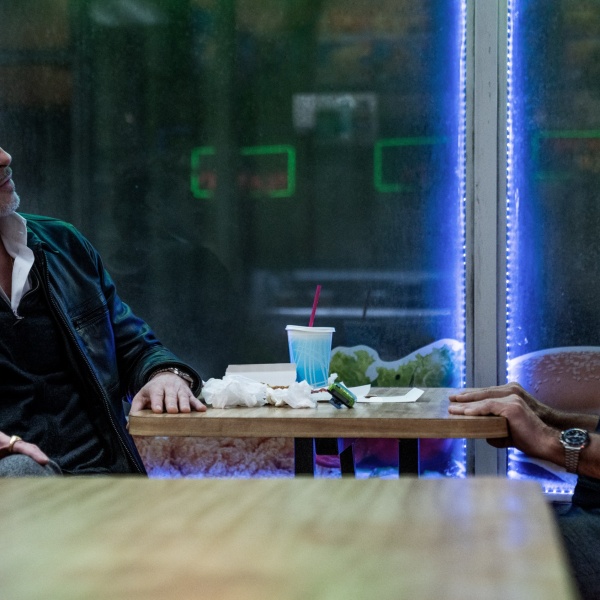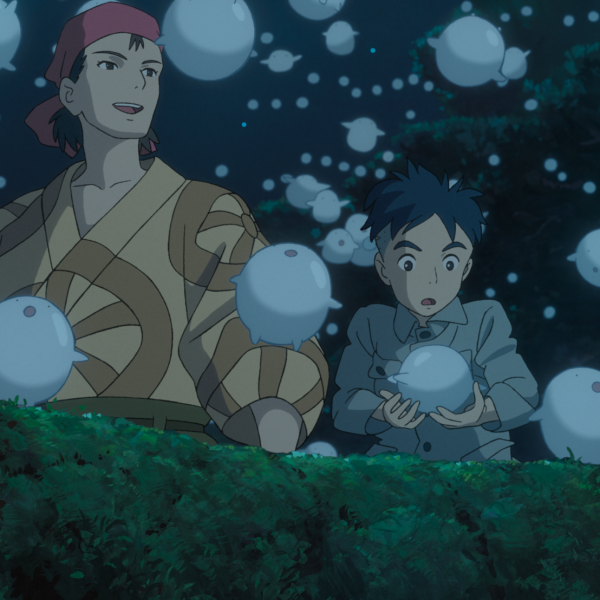How many great films does it take to designate a director as a historically significant auteur? Jean Vigo only directed a few shorts and one feature, but they were enough to make him a hero to the pioneers of the French New Wave. Actor-turned-helmer Charles Laughton directed just one movie — “The Night of the Hunter” — but it was such a haunting and singular masterpiece that few would argue that Laughton was one of the medium’s masters. Elaine May stopped directing after four movies, but she’d probably be considered one of the greatest directors who ever lived if she had only made “Mikey and Nicky.”
Christina Hornisher is nowhere near as well known as Vigo, Laughton, or May, but she should be — and now, thanks to a pristine restoration of her sole feature, “Hollywood 90028,” perhaps she will. Released in 1974 after Hornisher earned critical accolades for her UCLA film school shorts, “Hollywood 90028” is one of the most distinctive, unsettling, and compelling films of its year — which is really saying something since 1974 included “The Godfather Part II,” “Alice Doesn’t Live Here Anymore,” and “A Woman Under the Influence.” Unlike those justly lauded classics, “Hollywood 90028” was released without fanfare and quickly drifted into obscurity, but that has little to do with its quality and everything to do with its lack of institutional support as a scrappy indie made for the exploitation market.
Hornisher’s film tells the story of Mark, a cameraman who aspires to work on serious Hollywood films but can only find work making porno loops; when his personal and professional frustrations reach their breaking point, Mark turns to murder in a story that has echoes of Michael Powell’s “Peeping Tom” and premonitions of Martin Scorsese’s “Taxi Driver.” The sex and violence motivated by the premise allowed Hornisher to market her movie as an exploitation flick for drive-ins, but the movie’s contemplative pacing and profound insights into the nature of disillusionment feel closer to the art house than the grindhouse. In fact, it’s the intersection between the two that gives “Hollywood 90028” its lingering power; Pure Cinema Podcast co-host Elric Kane once described “Hollywood 90028” as “Chantal Akerman’s ‘Hillside Strangler,’” and that gives you some idea of the film’s tone.
Among other things, “Hollywood 90028” is one of the greatest films ever made about how truly brutal Hollywood’s dream factory can be on those whose dreams don’t come true, an idea that Hornisher follows to a logical but genuinely shocking conclusion — the final shot of the movie is stunning both conceptually and logistically, leaving the audience as emotionally devastated as they are awed by the technical achievement. Part of the film’s impact comes from Hornisher’s anthropological study of a then-contemporary, now-vanished Los Angeles; the movie is preoccupied with the combination of glamorous and decaying urban spaces that comprise the city, which Mark bitterly comments on throughout (“Pretty soon, nothing in this city will be more than 30 years old”). There’s a weight and specificity to Hornisher’s images that give depth and texture to the characterizations and thematic preoccupations that swirl around them; the movie is both concrete and dreamy, alluring and horrifying.
Until relatively recently, “Hollywood 90028” could barely be seen at all, which makes the upcoming New York premiere of its 4K restoration cause for celebration. As “The First Omen” director Arkasha Stevenson has noted, “To watch ‘Hollywood 90028’ is to slowly sink into the murky land of lost dreams that was, and still is, the underbelly of Tinseltown. Christina Hornisher’s lens looks presciently and compassionately at how the human heart can become so twisted that the one thing more terrifying than committing murder can be finding love. It’s not just a horror film. It’s a statement. And if that wasn’t enough, she caps off the film with one of the ballsiest and most provocative shots possibly ever made in Hollywood!”
That “Hollywood 90028” is finally available to be screened in a pristine form is thanks to a decades-long process of discovery and restoration undertaken by Grindhouse Releasing‘s Bob Murawski, who first discovered the movie under the title “Twisted Throats” when he was working for an independent distributor in Detroit named Bob Mason. “Bob handled hundreds of low-budget exploitation films that he booked in drive-ins throughout the midwest,” Murawski told IndieWire. “Things like ‘Invasion of the Blood Farmers,’ ‘Meat Cleaver Massacre,’ and ‘Night of the Zombies.’” As a horror fan, Murawski was familiar with most of the titles but had never heard of “Twisted Throats,” and in these pre-internet days, finding information on the film was impossible. “I had a pretty extensive library of books on horror movies and cult films, but I could find no mention of it in any of them.”
Eventually, Murawski discovered that the film had also been titled “The Hollywood Hills Strangler,” but aside from a sleazy newspaper ad, he couldn’t find any information about it. Murawski moved to Los Angeles to work in the film business as an editor — he won an Oscar for his work on “The Hurt Locker” with fellow editor Chris Innis — but he never stopped thinking about “Twisted Throats.” “One year in the mid-’90s, I went to Michigan for Christmas and brought the print back with me in my suitcase when I returned to L.A.,” Murawski said. “By then, the internet was starting up and I was able to determine that the original title was ‘Hollywood 90028.’ I eventually viewed the reels and found out what a great, unique movie it actually was.” Murawski persuaded his friends at the New Beverly repertory cinema to screen the print as part of a horror double feature, and the response was incredibly positive. “I was determined to release the movie on video.”
Hornisher had passed away by this point, but Murawski got in touch with her husband and partner in the production, Jean-Pierre Geuens, and made a deal to release the movie. “It seemed like the negative was long lost, so my original plan was to release it from the battered, faded print that I had,” Murawski said. “I got it transferred and began to try to get it restored as much as possible. It was in very rough shape, but it was better than nothing.” Murawski had a thrilling moment when his friend Joe Rubin of Vinegar Syndrome called to tell him he had just purchased a warehouse full of film negatives, and among them was “Hollywood 90028.” “A miracle. We went through the negatives and, unfortunately, two of the reels were missing. I was prepared to source these from our print, but then, in an unbelievable stroke of luck, the missing reels turned up in the Academy of Motion Pictures archives.”
Now, Grindhouse Releasing is in the process of releasing the film theatrically all over the world. “Last fall, it premiered at the Sitges Film Festival, and will be playing at the Night Visions Film Festival in Helsinki next month, along with many playdates across the U.S.,” Murawski said. If you’re unable to see one of the theatrical screenings, however, don’t panic — later this year, Grindhouse plans to release a deluxe Blu-ray of “Hollywood 90028” with hours of interviews and extra features. The three stars of the movie — Christopher Augustine, Jeannette Dilger, and Gayle Davis — will all participate in that release, which will hopefully place Christina Hornisher in the pantheon where she belongs. For if one great movie is enough to classify someone as a major director, “Hollywood 90028” more than fits the bill.
The 4K restoration of “Hollywood 90028” will have its New York premiere on April 10 at the Nitehawk Cinema as part of the Future of Film is Female screening series.







